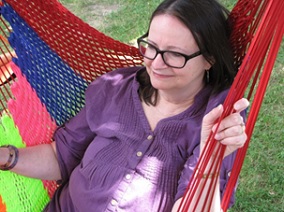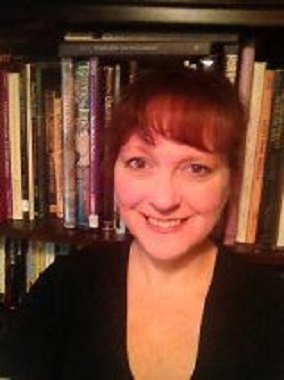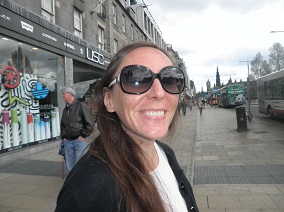 We are utterly ecstatic to have Barbara Diehl teach “Short Story I” through the Eckleburg Workshop Series. With a twenty-five-year publication history full of poetry and short stories, Diehl is well-versed in not just the techniques of the craft trade, but also in the wide variety of literature out there that can teach us how to become better writers as we become better readers. With a workshop that encourages improvement in writing not just from practicing the craft, but also from reading attentively and providing engaged feedback, poet and writer Diehl brings an invigorating mix of passion and professionalism to her workshops.
We are utterly ecstatic to have Barbara Diehl teach “Short Story I” through the Eckleburg Workshop Series. With a twenty-five-year publication history full of poetry and short stories, Diehl is well-versed in not just the techniques of the craft trade, but also in the wide variety of literature out there that can teach us how to become better writers as we become better readers. With a workshop that encourages improvement in writing not just from practicing the craft, but also from reading attentively and providing engaged feedback, poet and writer Diehl brings an invigorating mix of passion and professionalism to her workshops.
The Doctor TJ Eckleburg Review: How did you become involved with the Eckleburg Workshops Series?
Barbara Diehl: I participated in the Magic Realism course as a student and very much enjoyed the experience. After completing a graduate program in writing and then taking some time off from writing, I needed some structure and “kick in the pants” motivation to write again. Not that I’m ever far from the writing world. I manage a literary journal. But I needed that “me” time. It did pay off. After some polishing, one of the pieces produced during the course found a home in a journal. Knowing how beneficial that “me” time can be, I was delighted when Rae asked me to lead “Short Story I.” That’s a territory I know well and love.
TJE: What workshop do you teach and how often do you teach it?
BD: I’m scheduled to teach “Short Story I,” and I hope to be able to teach it monthly. This workshop focuses on the scene—the heart (in my opinion) of the short story.
TJE: What attracts you to the genre of your workshop?
BD: I’m torn between the poet’s precision and concision and the novelist’s careful, slow unreeling of narrative. The short story is the perfect middle ground for me. I love a writing workspace of three or four pages to about 18; so much can be accomplished in a small space. And small spaces should appeal to many contemporary readers. At least they do to me. I like getting a lot of bang for my buck.
TJE: What is your approach to teaching and running a workshop?
BD: I don’t believe that we learn the complexities of good writing by being talked at—or reading “how to” advice in large chunks. Not that these aren’t helpful activities. (I own an awful lot of books on the writing craft.) We learn to write fiction by reading extensively in the genre we love most, reading for enjoyment and reading with an analytical eye; by spending as much time as possible actually writing and revising; and by getting feedback from other readers and writers.
TJE: What is your own writing background?
BD: I’ve been writing and publishing poems and short stories for about 25 years, and I was writing for many years before that. (A bookworm with a ridiculously overactive imagination since elementary school.) I’ve also been an active member of Baltimore’s literary community for many years, as well, including participation in and management of literary organizations. Writing may be a solitary activity, but writers should be good citizens of their writing communities. It’s a win-win.
I enjoy trying different types of writing; it’s good to stretch the writing muscles. Switching back and forth between poetry and fiction is good for me, as well as switching between realistic stories and stories with magical elements.
TJE: What three books/articles would you recommend to someone who is just starting to write in her workshop’s genre?
BD: Writers who want to write great short stories should read anthologies such as the Best American Short Stories series to get a good sense of the kind of fiction currently being published by literary journals. Writers can also develop a good sense of the kind of fiction they find most appealing (or not at all appealing) by reading a large number of contemporary authors. For someone just starting to write fiction, I suggest a book on craft that covers the basics such as Writing Fiction Step by Step by Josip Novakovich or the classic What If by Anne Bernays and Pamela Painter. Both combine the basic elements of fiction writing with loads of exercises. A fairly comprehensive grammar and punctuation book is good to have, too. I’ve had Right Words Right Places by Scott Rice for a long time. I’d advise that new writers actually read a grammar book cover to cover, at least once. Boring, yes, but writers should take the nuts and bolts seriously if they want publishers to take their stories seriously.
TJE: What type of material, and how much of it will the participant produce by the end of the workshop?
BD: We will focus on writing story scenes—the story element (rather than exposition and description) most likely to engage readers’ attention, with lean and precise language. Scenes written over the four weeks of the workshop could be combined into a full story, used as starting points for several stories, or be developed into complete, one-scene stories.
TJE: What is your favorite facet of the workshop?
BD: Reading the workshop participants’ scenes! (Selfish, right?) After that: Helping them fine-tune those scenes and considering ways that the scenes can be integrated into a full story. I’ve scoured many short stories looking for scenes and spent a lot of time considering exercises that we can take from them, so I’m eager to see what those exercises produce.
Barbara Westwood Diehl is founding editor of The Baltimore Review. Her fiction and poetry have been published in many journals including MacGuffin, Confrontation, Potomac Review (Best of the 50), American Poetry Journal, Measure, Little Patuxent Review, SmokeLong Quarterly, Gargoyle, Superstition Review, Word Riot, Bartleby Snopes, Penduline Press, Northwind. NANO Fiction, and Ellery Queen Mystery Magazine. Stories forthcoming in Luna Luna and Per Contra.



 The Doctor TJ Ecklburg Review is thrilled to have Brenda Mann Hammack as part of our workshop series’ team of instructors. Hammack teaches workshops on fairy tales. She encourages cross-genre writing and by the end of her workshops, participants will have created three original short stories, and gone through one longer revision. Throughout the workshops, Hammack provides numerous materials and prompts so the participant can figure out what works best for her. Fun and informative, Hammack’s workshops provide a fresh perspective and innovating ways to approach writing fairy tales.
The Doctor TJ Ecklburg Review is thrilled to have Brenda Mann Hammack as part of our workshop series’ team of instructors. Hammack teaches workshops on fairy tales. She encourages cross-genre writing and by the end of her workshops, participants will have created three original short stories, and gone through one longer revision. Throughout the workshops, Hammack provides numerous materials and prompts so the participant can figure out what works best for her. Fun and informative, Hammack’s workshops provide a fresh perspective and innovating ways to approach writing fairy tales.
 Author of nearly twenty books, Eckleburg is thrilled to have Kristina Marie Darling teach our
Author of nearly twenty books, Eckleburg is thrilled to have Kristina Marie Darling teach our